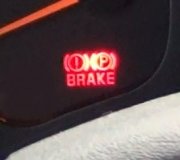1968 Other Oldsmobile Models V8 Two Wheel Drive Automatic 132k miles
Brake pedal required pumping to apply brakes. Replaced master cylinder. After replacing, brakes apply normally for a while then pedal travel decreases on application and brakes remain applied. Pedal hard, very little travel. Thought rebuilt master cylinder was defective. Replaced with another rebuilt unit. Same problem. Note: pedal travel has always been close to the floor when applied. However, condition now experienced is unlike any previously encountered. I'm at a loss. Suggestions on how to trouble shoot would be welcome.
SPONSORED LINKS
Sunday, May 17th, 2009 AT 4:18 PM



